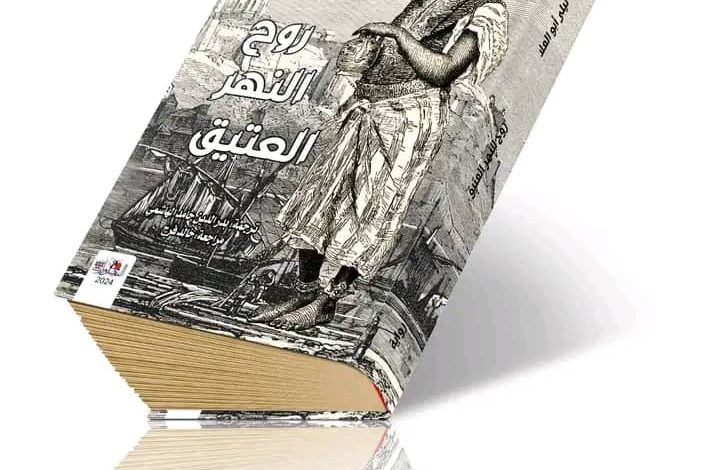“The Nile Dictionary”…A Diverse Cultural Code

Khartoum – Sudan Events
“The Nile Dictionary” constitutes an encyclopedic work that monitors the “Nile phenomenon” as the cultural backbone of the ten Nile Basin countries, trying to understand this central cultural code, especially at the popular level, which could prompt the launch of an economic bloc, which will undoubtedly have a major impact on The New World shaped itself economically first, and then onThe political and cultural level as well.
According to Al-Sharq Al-Awsat, the book represents a multifaceted research effort. On its way to completing this dictionary, its author, Dr. Hisham Abdel Aziz, narrates that the Nile was the subject of his master’s thesis entitled: “The Nile in Oral and Written Narratives.”
He published a book on “Folklore of the Nile,” and went on to write: Behind the news of the great river in various aspects, includingHis traditional narratives and popular novels in the countries of the Ten Basin, the Irisha celebration of the Oromo ethnicity in Ethiopia, and the Berber excavations in Al-Obeid, Sudan, as well as Napoleon’s Bay, the Berthal scale, and the Rawda scale…
Abdel Aziz says: “I saw the inhabitants of the Nile and lived with them in all their conditions. If someone is sad, he drinks from the sea. If he is happy, his happiness is indescribable.
If the Nile comes, they marry off their sons and daughters. If it sets, they read the Qur’an and Sahih al-Bukhari.
If a baby comes to them, they throw (his salvation) into its running water.
If he dies, they ask for a drink from him before they move on to the other world. . Fairies dwell in it, and magicians are attracted to it by lower deeds, and in its sweet water there is tender meat of tilapia, brown, and catfish.
On its shores, they celebrate Wafaa, Sham El-Nessim, Nowruz, Irisha, and Martyr’s Day.
The writer believes that the Nile River is not the most important river in Egypt and the region, but rather in the entire world, nor is it merely an economic phenomenon that has developed many times to become a political phenomenon: it is “much beyond that, and not only for Egypt and the basin countries. And whoever sees me as exaggerating that hundreds of living creatures, including fish, birds, insects, rodents, livestock, and humans, all live on the Nile and because of it, and they suffer with any change in the river, and humanity suffers as a result of them, with its entire environmental balance, because it is also an environmental phenomenon.
What is more important, he adds, than the fact that the Nile is an economic, political and environmental phenomenon, is that it is a central cultural phenomenon.
Rather, it is simply the “source phenomenon,” or the framework phenomenon, for all of East Africa, and any change in the features of this phenomenon at any level means – without any exaggeration. – Tampering with the genetic characteristics of this geographical region in all its dimensionsCivilized.
Perhaps this importance is the main motivation behind the increasing interest of researchers and writers throughout written history in researching this river and the energies it holds and the ambitions it raises, including what is political, what is development, and so on.
Abdel Aziz confirms that his theoretical statements have greatly advanced in understanding the phenomenon of the Nile at every stage. “After I used to see it as influential in the movement of Egyptian society economically and politically, I began to see its influence extending into the countries of the basin, and then looking at the great river as one of the conditions for environmental balance on the planet.” , before I conclude that an accurate understanding of the nature of… East Africa, from north to south, will not happen unless we understand what I call (the Nile phenomenon), whether on the geographical, political or cultural level, which is the most important to me.”



